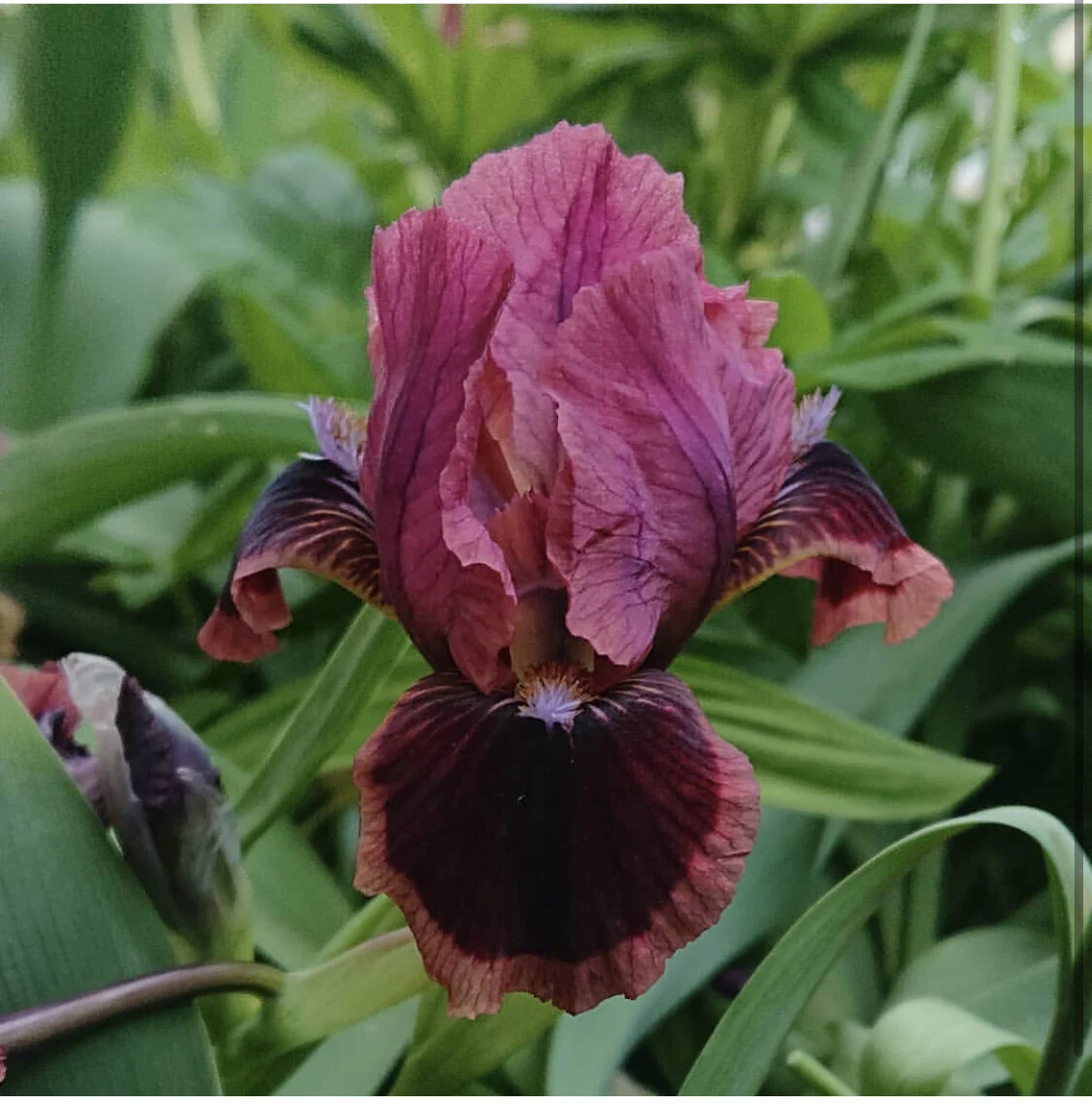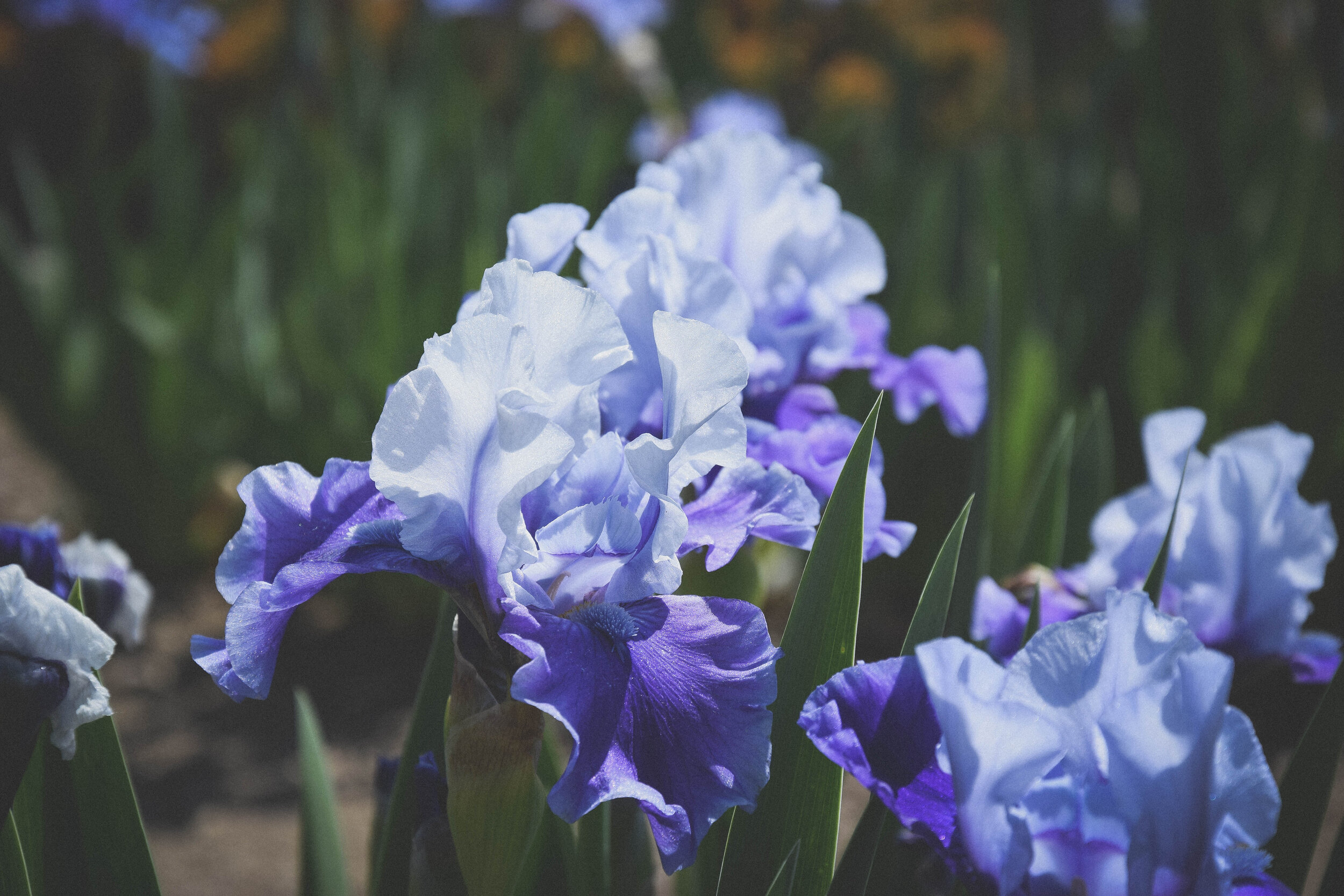How To Grow Iris
Bearded iris are one of the true glories of the late spring. A little effort to plant iris in the fall will give you the most incredible blooms every year for years to come.
1. Plant in a sunny location
Iris are grown in zones 5-9 and like a sunny area. They can tolerate some shade and afternoon shade might even be optimal in the south, but in most places you’ll want to give them as much sun as possible. Without sun they will struggle blooming. You’ll also want to choose a site that is not muggy. Iris are grown from rhizomes and if they are planted in a place with poor drainage the rhizome that sits on the ground will rot.
2. How To Plant Your Rhizome
When you unpack your rhizome you will find a strange tuberous thing dragging roots with some flat wilted growth coming out of the top. Don’t worry. These wilted looking creatures will become an incredible plant and flower.
Settle the rhizome in loose soil right at the surface with the roots pointed downward and the growth pointing upward. Make sure the roots are all covered tightly with soil, leaving the tuberous part poking out of the soil. Space every 12-18 inches.
3. Water
Water at the time of planting if the soil is extremely dry. During the winter keep an eye on your iris. If the soil dries out completely for a long period of time your rhizomes can shrivel up so water if they’re beneath an overhang or you go without water for a very long time. In most cases though the water from snow and rain during the winter will be sufficient to keep your rhizomes happy.
4. Spring Bloom
In the earliest spring your rhizomes will begin to shoot out flat spiky foliage. Iris often take a year to establish so don’t be alarmed if the first spring your iris don’t bloom. This is common as the plant works to establish themselves. By the 2nd year you will get beautiful blooms in late spring.
5. Maintenance
Each fall take sharp shears and cut plants down just above the rhizome. As plants get larger the rhizomes will become a little overcrowded. You can then divide tubers and replant them to get healthier plants with more blooms.
Iris are breathtaking in landscapes but can also be stunning as a cut flower and perform well in the vase. They are a really beautiful choice along a fence or driveway to add color in spring and texture all year.
6. Strong Performing Varieties
Iris in the wild are very small and come in limited colors. Over many years iris have been bred to produce large healthy flowers in a rainbow of beautiful colors. We have rounded up some of the most prolific and high performing varieties. These varieties can be purchased here at Halden Garden.
Cat’s Eye
Photo by @aaron.immanuel_83
Dame De Coeur
Finishing School
Forever Blue Dwarf
Glamazon
Harvest of Memories
Hermes
Immortality
Java Blue
Roaring Twenties
Any of these varieties can be purchased here at Halden Garden.
I sincerely hope that you include iris in your fall planting this year. Every year you will be so happy that you did. I know you’ll love them as much as I do.
-Sara Haller (Halden Co-Founder)
We send out an email once a week with garden advice from Sara. If you’d like to be notified we’re happy to have you join our email list. You can unsubscribe at any time. We don’t use the list for any other purpose.















